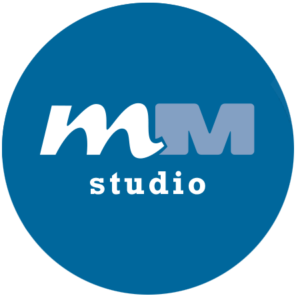
It’s impossible to know just how many accounts you’ll need over the next decade (and beyond) for your chart of accounts. To remedy this, set up a separate account used strictly for business. Ideally, a business checking account is designed for business purposes. Instead, it refers to any report that gives information on the financial health of a business. If you own your business, equity equals your assets minus your liabilities.
- This can help avoid costly mistakes from being made due to negligence or carelessness.
- For example, your business checking account may allow a limited number of transactions per month.
- But hidden out of sight on the computer screens of the accounting department, they go on wasting resources for years.
- Because of this, it tends to be the accounting method that most sole proprietors choose to use.
- Doing so creates greater transparency when it comes time for tax season and can also help protect against potential fraud or liabilities due to incorrect bookkeeping practices.
- Property management accounting and bookkeeping are not for the faint of heart.
The right property management accounting software will streamline accounting work to give you more time to focus on the items that will keep your entities cash flow positive. Many property managers choose to use double-entry bookkeeping because it’s a clearer way of keeping track of items across accounts. As with any business, rental property management must consider unexpected expenses.
Develop a system to find the right tenant
However, assets also include land, cash deposits, and any items within your accounts receivable. In a nutshell, assets are anything within your portfolio that has value. There are several reports, or financial statements, that will need to be created on a regular basis. With a dedicated account, you can integrate your bank account with your property law firm bookkeeping accounting software for a more accurate picture of your cash flow, receipts and balances. Rent Manager is a specialized rental property management software with a wide range of features and good accessibility. And if that isn’t enough, DoorLoop’s full-service rental property management software starts as low as $59/month for your first 20 units.

When dealing with large sums of money on both sides of the equation, it’s especially important to separate personal funds from those used for business purposes to avoid confusion down the line. Of course, successfully keeping track of your deductions means that you would need to have good accounting for property management companies. The IRS requires that your business has all of the essential financial records. This may become overwhelming for staffers to manage, which is why it is beneficial to work with an accountant who can help to keep a record of these details for you.
Overview: What is property management accounting?
Boards never have to worry about data getting erased if a computer goes down because all of the information is stored securely on a server. Similarly, board members (and property managers) can achieve a lot more in the same amount of time. They can send invoices, record payments, chart expenses and income, manage bills and more.
- For example, for monthly reporting, an accounting period might go from the first to the last day of the calendar month.
- Ignoring this step could result in missed opportunities for write-offs or other benefits that wouldn’t have been taken advantage of had individual categories been used.
- Instead of scrambling to come up with the cash to cover a last-minute purchase, or even lost revenue from an owner who parted ways, keep a rainy-day fund.
- A property management business will record each transaction twice as debits and credits.
- The more details the HOA can provide, the more transparent it can be.
With this method, transactions are entered at the moment that money changes hands. All of the money would be recorded as soon as the tenant paid and would not be spread out over four months. Accounting for property management companies differs from standard accounting. An accountant for property management companies needs to keep track of the company’s finances and manage individual accounts for the properties that the company oversees.
Property Management
A property management team that commits to good accounting practices will be making their jobs less stressful, and more productive, in the long run. These property management accounting practices are crucial for any property manager looking to streamline their processes and elevate what’s possible for their properties. Follow these steps to a tee, and watch your team reach new levels of efficiency, effectiveness, and cash flow success. These days, property owners, real estate investors, and property management firms can find great accounting software. These apps offer excellent accounting features, track key metrics and capital appreciation, and maintain a general ledger.
For example, for monthly reporting, an accounting period might go from the first to the last day of the calendar month. Alternatively, for tax purposes, it could be the beginning and end of the financial year. Hemlane is a robust rental property software with several unique high-end features centered around offering local agent support. If you use NNN leases, you’ll need to set up a way within your accounting system to track everyday area expenses and annually bill for tenants. A big part of accounting is tracking your expenses for the sake of accurate tax reporting. These are two very different sets of tasks and should be kept separate to maintain accurate accounting.










